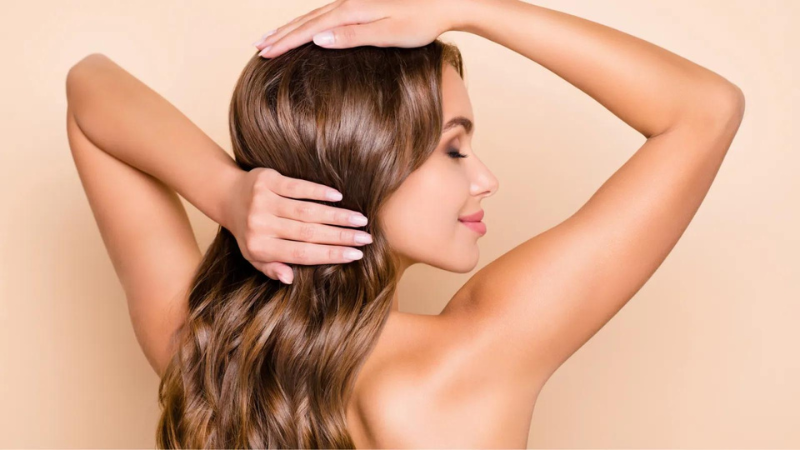In the realm of beauty and self-expression, few things carry as much significance as our hair. It’s not just a feature; it’s a canvas for creativity, a symbol of identity, and a reflection of overall health. Whether you dream of flowing, Rapunzel-esque tresses or simply want to bolster the strength and vitality of your locks, you’ve embarked on an exciting journey.
Our blog, “12 Ways to Make Your Hair Grow Faster and Stronger,” is your trusty guide in this quest. It unravels the secrets of nurturing those precious strands, dispelling myths, and offering practical advice that works.
From understanding the science of hair growth to debunking common misconceptions, we delve into the intricacies of hair care. We explore the impact of nutrition, the art of scalp massages, and the role of stress in your hair’s health.
So, if you’re yearning for a natural, beautiful mane, join us as we unlock the twelve potent ways to accelerate hair growth and fortify your hair’s strength. It’s time to embrace the journey towards healthier, longer, and more vibrant locks.
Tips to Help You Grow Hair Naturally
Unlock the secrets to promote luscious, vibrant locks naturally. From embracing a balanced diet rich in hair-loving nutrients to nurturing your scalp and managing stress effectively, these tips are your path to achieving longer, healthier hair. Say goodbye to hair worries and hello to your hair’s full potential.
1. Healthy Diet

A healthy diet isn’t just about nourishing your body; it’s also the cornerstone of promoting stunning, healthy hair. Just as a plant requires fertile soil to flourish, your hair relies on the nutrients you provide through your diet to grow long and strong. Proteins, the building blocks of hair, are found in lean meats, eggs, and legumes. Vitamins such as A, E, and the B-vitamins are essential for various aspects of hair health, from maintaining scalp sebum production to ensuring good blood circulation in the hair follicles.
Minerals like zinc and iron contribute to growth and strength. Omega-3 fatty acids keep your scalp and follicles well-nourished, while antioxidants combat the damage caused by free radicals. By consuming a diet rich in these elements and staying well-hydrated, you’re creating an optimal environment for your hair to thrive. A healthy diet not only fosters hair growth but also imparts shine, resilience, and thickness to your tresses, making it the fundamental step toward achieving the lustrous locks you desire.
Also Read- Creative Braided Hairstyles Ideas for Every Occasion
2. Scalp Massage
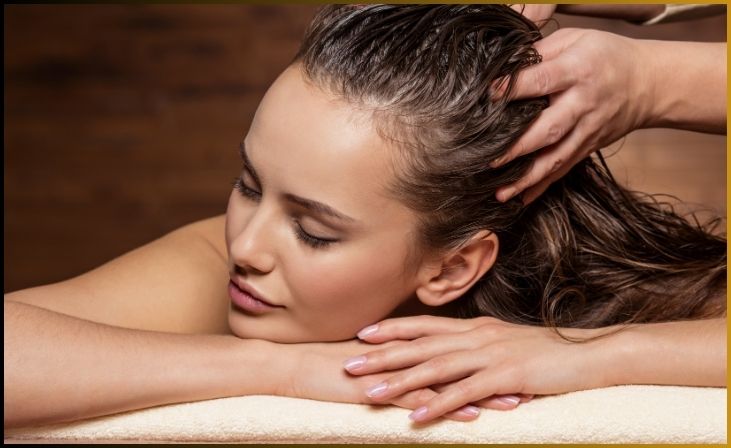
A soothing and invigorating practice, scalp massage is more than just a delightful indulgence. It’s a time-honored ritual that plays a pivotal role in promoting healthy hair growth. When your fingertips gently knead your scalp, an array of benefits unfolds.
Firstly, scalp massage enhances blood circulation to the hair follicles. This increased blood flow brings with it a rich supply of oxygen and nutrients, vital for nourishing the roots and promoting hair growth.
Secondly, the relaxation and stress reduction associated with scalp massage can have a profound impact. Stress is a significant contributor to hair loss and reduced hair health, and a calming massage routine can help mitigate its effects.
Thirdly, the act of massaging your scalp helps to distribute your natural scalp oils, or sebum, more evenly. This can alleviate dryness and flakiness, creating a healthier environment for hair growth.
3. Trim Regularly
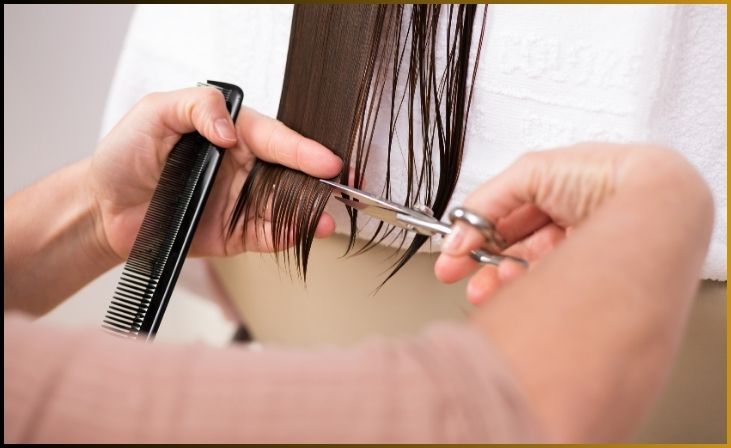
It may sound paradoxical, but one of the most effective ways to encourage the growth of beautiful, healthy hair is to trim it regularly. This practice involves snipping off a small portion of your hair’s ends every 6-8 weeks, and its benefits are multifold.
Firstly, regular trims help prevent and manage split ends, a common issue that can lead to frizzy, brittle hair. By eliminating these split ends, your hair retains a smooth, even texture, reducing the likelihood of further damage and breakage.
Secondly, trimming plays a pivotal role in maintaining your hair’s thickness and fullness. Over time, hair can become thinner due to breakage and the accumulation of damaged ends. Trims preserve your hair’s volume, leaving it looking healthy and vibrant.
Moreover, by removing damaged sections, trims reduce the risk of breakage. Stronger, well-trimmed hair is more resilient, allowing it to grow longer without constant breakage.
4. Avoid Heat
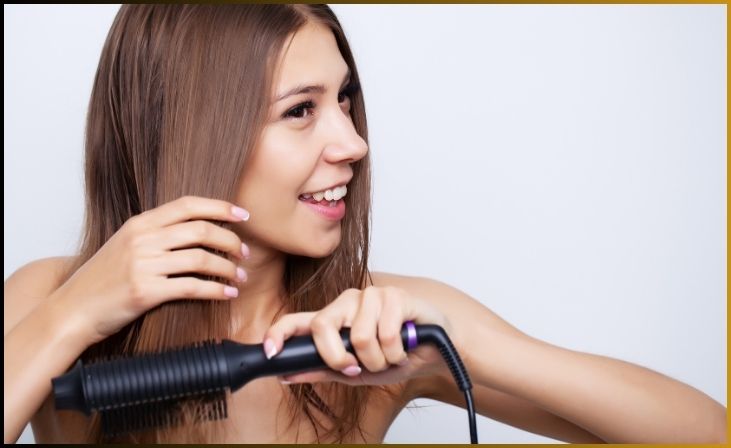
In the quest for long, strong, and beautiful hair, one practice stands out as a significant game-changer – avoiding excessive heat. Hair is incredibly resilient, but it’s also susceptible to damage when exposed to high temperatures regularly. Heat styling tools like hairdryers, straighteners, and curling irons can lead to a multitude of hair problems, including dryness, breakage, and split ends.
When you expose your hair to excessive heat, the high temperatures can strip away its natural moisture, leaving it dry and brittle. This not only affects the appearance of your hair but also its overall health. Furthermore, heat can cause the hair shaft to weaken and eventually lead to breakage, reducing the length and thickness of your hair.
Avoiding heat doesn’t mean completely forgoing styling tools, but rather using them in moderation and with protective measures in place. Heat protectant sprays and lower heat settings can minimize the risk of damage. Embracing heatless styling options like braids, twists, and air-drying can further reduce heat-related stress on your hair.
5. Gentle Hair Care
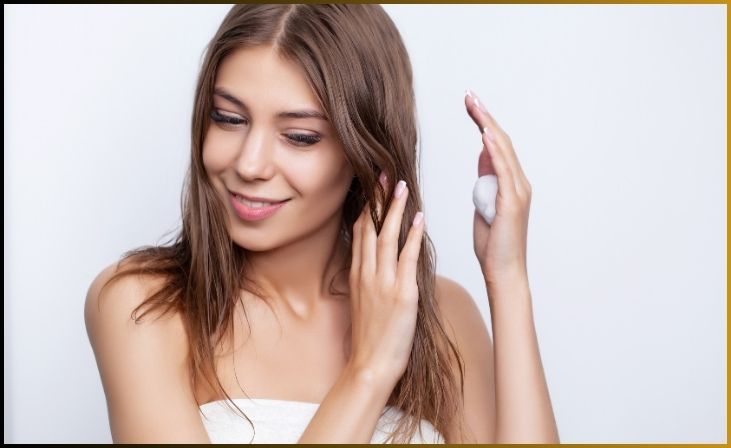
Amid the whirlwind of hair care products and styling techniques, there’s a simple yet profound principle that often goes unnoticed – the art of gentle hair care. This approach revolves around treating your hair with the utmost care and respect, just as you would for any delicate and precious possession.
Gentle hair care involves using mild shampoos and conditioners that don’t strip your hair of its natural oils, maintaining a gentle touch during brushing and styling to minimize breakage, and avoiding harsh chemicals or treatments that can harm your hair’s structure.
Furthermore, it encompasses patience and attentiveness to the specific needs of your hair type. From curly to straight, fine to thick, each hair type requires tailored care, and a gentle approach is the key to bringing out its natural beauty.
Click Here- Elevate Your Style with Chic Haircuts for Straight Hair
6. Avoid Tight Hairstyles
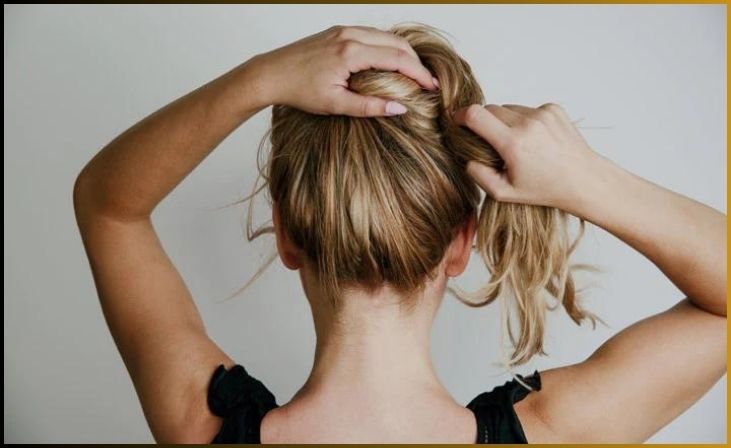
While stylish updos and sleek ponytails can be an excellent way to manage your hair, it’s essential to approach them with caution. Tight hairstyles, especially when worn frequently, can pose significant risks to the health and comfort of your hair and scalp.
When you style your hair in tight buns, braids, or ponytails, the tension can lead to hair breakage and even hair loss, a condition known as traction alopecia. The constant pulling on your hair follicles weakens them, potentially causing irreversible damage. Moreover, tight hairstyles can result in discomfort and even headaches, detracting from the overall enjoyment of your style.
To maintain the strength and vitality of your hair, it’s advisable to opt for looser, more relaxed hairstyles. When pulling your hair back, ensure it’s not overly tight, and give your scalp and hair a chance to breathe. Also, allowing your hair to rest from tight hairstyles regularly is crucial.
7. Silk Pillowcases

The choice of a pillowcase might not seem directly related to hair care, but when it comes to maintaining your hair’s health and beauty, even the smallest details can make a significant difference. Silk pillowcases, often hailed as a beauty secret, offer a range of advantages that extend beyond a luxurious feel against your skin.
Firstly, silk pillowcases are incredibly gentle on your hair. Unlike cotton, which can create friction and lead to hair breakage and frizz, silk allows your hair to glide smoothly as you move during sleep. This reduced friction preserves your hair’s natural texture and shine.
Secondly, silk is known for its moisture-wicking properties. It doesn’t absorb moisture from your hair or skincare products, helping to maintain your hair’s hydration and the effectiveness of your products.
8. Hydrate Inside and Out

When it comes to maintaining healthy, vibrant hair, hydration is an essential principle. This concept revolves around nurturing your hair from both the inside and outside, creating a harmonious environment for your locks to flourish.
Internal hydration begins with a balanced and well-hydrated body. Drinking an adequate amount of water and consuming moisture-rich foods like fruits and vegetables is fundamental. Proper hydration ensures that your hair receives the nourishment it needs from within, leading to a healthy and radiant appearance.
External hydration involves using hydrating hair products such as shampoos and conditioners designed to replenish moisture. Deep conditioning treatments and leave-in conditioners are also beneficial for providing a hydration boost to your hair.
9. Avoid Chemical Treatments
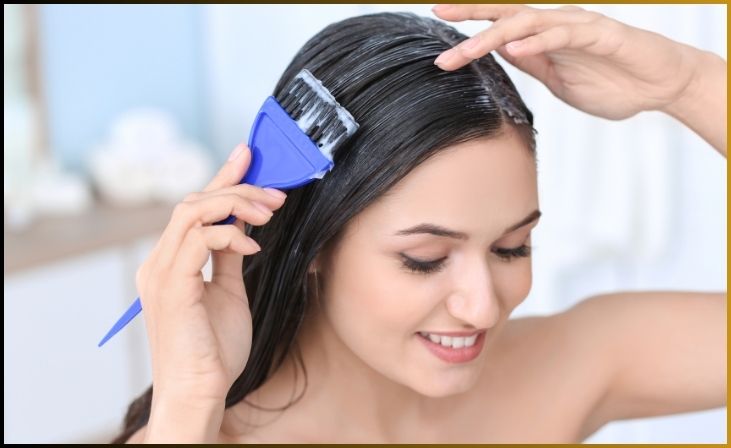
In the pursuit of stylish and dynamic hair, it’s easy to be tempted by various chemical treatments such as perms, relaxers, and excessive dyeing. While these treatments can produce dramatic results, they can also come at a significant cost to your hair’s health and longevity.
Chemical treatments often involve the use of harsh ingredients that can strip your hair of its natural oils and disrupt its structure. This can result in dryness, breakage, and dullness. Frequent chemical treatments may even lead to more severe issues, such as hair thinning or hair loss. Furthermore, the maintenance of chemically treated hair can become an ongoing cycle of treatments and repairs, which can be time-consuming and expensive.
By avoiding or minimizing chemical treatments, you’re not only preserving your hair’s natural beauty but also maintaining its overall health and integrity. Embrace your hair’s unique texture and color, and opt for gentler alternatives or protective styles to achieve the look you desire. Your hair will thank you with its shine, strength, and longevity.
10. Biotin Supplements
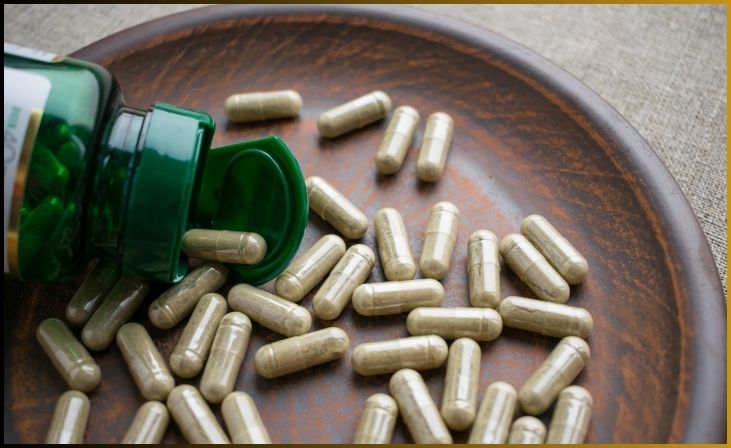
Biotin, also known as vitamin H, is often hailed as the go-to supplement for promoting healthy hair growth and overall hair health. It’s a B-vitamin that plays a pivotal role in the development of healthy hair, skin, and nails.
Biotin supplements are particularly popular because they help address deficiencies that might occur in our diet. Biotin contributes to the production of keratin, a protein that forms the structural foundation of our hair. When you introduce biotin supplements into your daily routine, you’re essentially providing your hair with the essential building blocks it needs to grow strong, vibrant, and resilient.
The advantages of biotin extend beyond hair growth. It can also contribute to improved hair thickness and a reduction in hair loss, making it a valuable addition to your hair care regimen. However, it’s important to consult with a healthcare professional before adding any supplements to your diet, as they can help you determine the appropriate dosage and ensure it’s the right choice for your individual needs.
11. Stress Management

In the modern, fast-paced world we live in, stress is an almost unavoidable companion. It can affect various aspects of our lives, including our hair and overall well-being. Stress, whether physical or emotional, can lead to hair loss, dryness, and even scalp issues.
Effective stress management is essential for maintaining the health and beauty of your hair. When we’re stressed, our body releases hormones like cortisol, which can affect the hair growth cycle. This can result in hair loss or even stunted growth. Furthermore, stress can lead to physical habits like excessive hair-pulling, which can harm the hair and scalp. Stress may also contribute to conditions like dandruff or an itchy scalp.
Incorporating stress management practices into your daily life can be transformative. Techniques like mindfulness, meditation, regular exercise, and hobbies that bring joy can help alleviate stress and its impact on your hair. Taking care of your mental and emotional well-being is an investment in the health and beauty of your hair, ensuring it remains vibrant and resilient despite the challenges of the modern world.
For More- 10 Trendy Haircuts And Hairstyles for Women Over 30
12. Patience

When it comes to achieving long, healthy hair, one of the most underrated yet essential qualities is patience. Growing your hair to the desired length and maintaining its health is a process that takes time, and patience is the key to success.
Hair grows at an average rate of about half an inch per month. This means that to achieve significantly longer hair, you need to allow it the time it needs to grow naturally. Rushing this process with aggressive styling, excessive heat, or chemical treatments can result in damage and breakage, setting your hair growth journey back.
Moreover, patience is essential in dealing with the inevitable challenges along the way. You may encounter stages where your hair seems unmanageable, or you experience setbacks such as split ends. Instead of seeking quick fixes, practicing patience allows you to nurture your hair with care and gentleness.
Hair Growth Common Challenges
Achieving longer and stronger hair often feels like a universal desire, but the journey can be filled with hurdles and challenges. To foster a better understanding of these roadblocks, it’s essential to delve into the various factors that can impede hair growth:
Genetics: Your genetic makeup plays a significant role in determining your hair’s length and thickness. If your family has a history of slow hair growth, you might encounter this challenge.
Hormonal Changes: Fluctuations in hormones, such as those experienced during pregnancy, menopause, or thyroid disorders, can lead to hair loss and hinder regrowth.
Aging: As we age, the rate of hair growth naturally slows down. Hair strands may also become finer and more susceptible to breakage.
Medical Conditions: Certain medical conditions, such as alopecia areata, scalp infections, or autoimmune disorders, can result in hair loss, making regrowth a challenging process.
Stress and Lifestyle: High-stress levels, poor nutrition, smoking, and excessive alcohol consumption can all contribute to hair loss and hinder the regrowth of healthy hair.
Hair Products and Styling: The use of harsh hair products, excessive heat styling, and tight hairstyles can damage your hair, leading to breakage and hindering its growth.
Poor Hair Care Habits: Neglecting regular hair care, including brushing and washing, can lead to scalp issues and hinder hair growth.
Diet and Nutrition: A lack of essential nutrients, such as proteins, vitamins, and minerals, can lead to weak, slow-growing hair.
Conclusion
As we wrap up our exploration of “12 Ways to Make Your Hair Grow Faster and Stronger,” it’s important to remember that achieving the hair of your dreams is not an overnight endeavor. It’s a journey, a commitment, and a daily act of self-care that will ultimately reward you with strong, vibrant locks.
Whether you’re focusing on your diet, practicing gentle hair care, or managing stress, consistency is the key. Every small change you make in your routine contributes to the overall health and beauty of your hair.
Incorporate these tips into your lifestyle gradually, creating a regimen that suits your unique needs and preferences. Additionally, remember the power of patience. Hair growth takes time, and each strand tells the story of your dedication and care.
FAQs
Results can vary based on your hair type and individual factors, but with consistent care, you can typically expect to notice improvements within a few months.
You can certainly combine these tips, as they complement each other. However, it’s advisable to introduce changes gradually to monitor their effects.
A balanced diet rich in vitamins, minerals, and proteins is essential for hair growth. Focus on fresh fruits, vegetables, lean proteins, and stay hydrated.
Trimming every 6-8 weeks is a general guideline to prevent split ends. Adjust based on your hair’s specific needs.
Look for products with biotin, keratin, and hydrating ingredients. Consult a professional for personalized recommendations.

